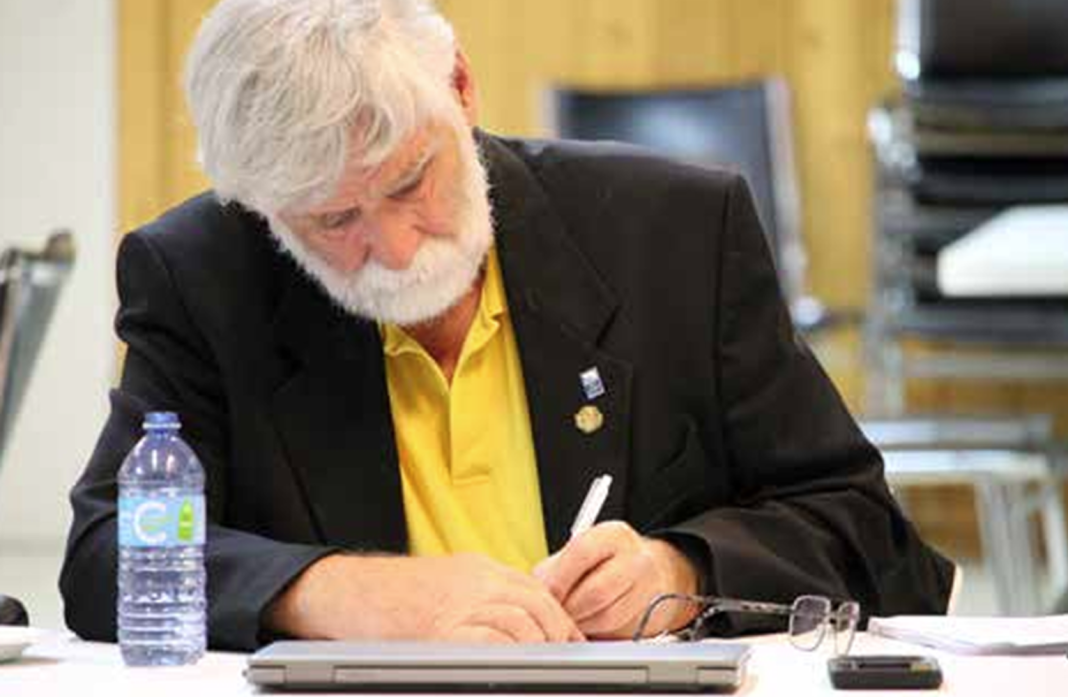County of Haliburton CAO Gary Dyke is on a travelling road show of the townships, trying to sell them on phase two of the services delivery review.
Dyke was at Highlands East council July 15.
“Basically, we’re looking at doing a systematic analysis of what the services are provided at both the County and local level, an evaluation of efficiency, effectively, and responsiveness to community needs, but also the needs of both municipal organizations,” he said.
He added, “a lot of the demands being put on local municipalities now, for even-non jurisdictional items, with respect to what we have to allocate with limited resources; we have to make sure we have the best processes around at our disposal to make sure that is being done in the best way possible and get best value for dollar.”
He stressed it’s not solely a costcutting exercise, or a first step toward amalgamation.
The County began the review of 66 services it, and member townships, provide, in 2022. That review found 12 high priority services that could be targeted for efficiencies. Six of them (solid waste management, fire services, economic development, bylaw enforcement, procurement and IT/digital strategy) were addressed in 2022-23.
Dyke said the ones that were implemented were successful and resulted in increased productivity and more efficient service delivery. Some were not, however, such as councillors rebuking the idea of centralizing solid waste management. The CAO talked about some of the challenges that have bogged the review down, including significant staff changes, an “ambitious” scope of work, and no formal service level agreements between the County and townships in the event of disagreements.
He added that for councils and the public, an agreement “clearly defines the accountability levels on the service delivery itself; how do we score ourselves? how do we report out to councils with respect to success, failure, indifference in what we’re doing? and how it’s impacting the ultimate clients, which are the ratepayers.”
Dyke said phase two has identified engineering, communications, human resources, and planning.
As an example, he said the County provides less engineering support to townships than a lot of their Eastern Ontario counterparts.
“If we do look at modifying how the engineering service is delivered, there’s the potential to increase service levels – that will greatly benefit the local municipalities.”
He said in the last two years, Algonquin Highlands, Dysart et al, Highlands East and Minden Hills had spent a combined $800,000 to $900,000 hiring engineering consultants. “It’s worth looking at ‘is there a better way for us to provide that service at both levels” by having an in-house engineer or engineering technician?
Dyke added the service delivery review is not static, but open to further analysis as time goes on. He added for efficiency, prior to filling positions, there could be a thorough evaluation to determine the relevancy and value of each role to the organization’s strategic goals.
The next detailed review and analysis would be done by County and township staff, led by CAOs. Final reports on recommended options would be provided to councils by the end of November, in time for the 2026 budget cycle. The ultimate decisions are up to local councils.
Deputy mayor Cec Ryall commented there may be some direct cost savings, but that is not the focus of why they are doing it. He added when it comes to “better bang for the buck, if we do this right, and we get our ducks in a row … and iron out the duplication, we should be able to get a good opportunity to avoid costs down the road.”
For example, “if we’re spending money on consulting fees, we may find that we now have a need for some kind of a staff function that would make that more cost effective, providing work at a lesser dollar.”





